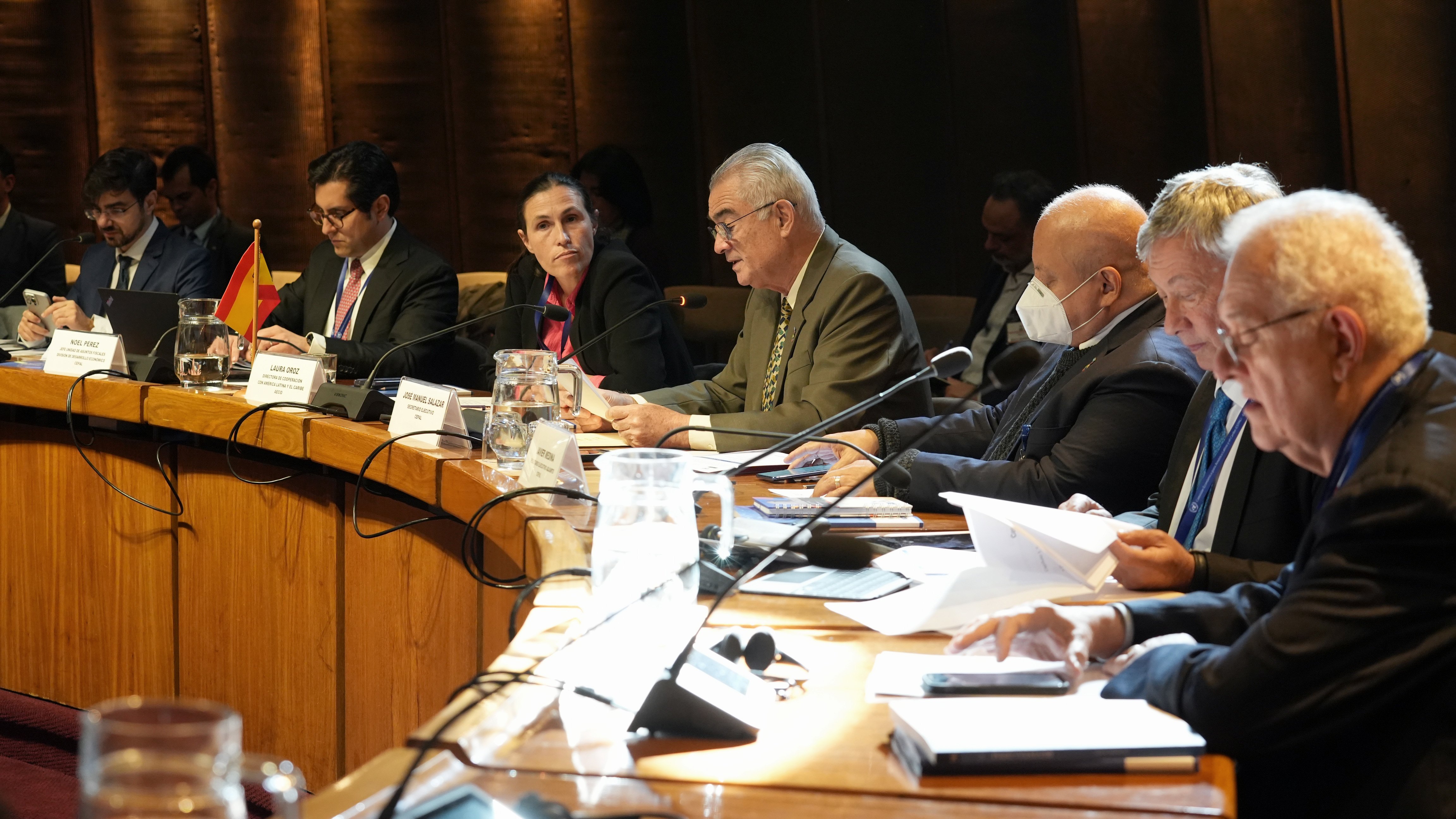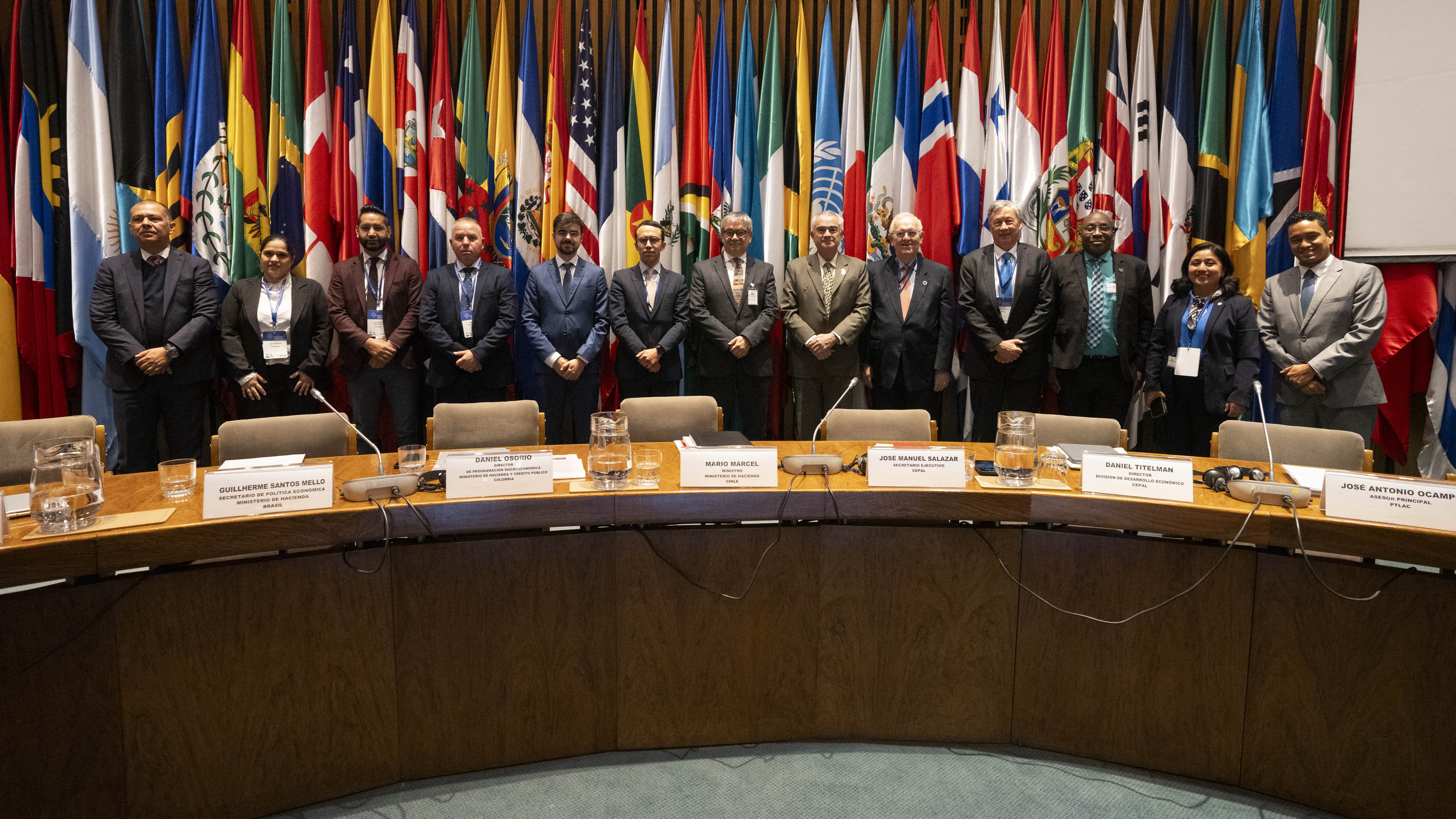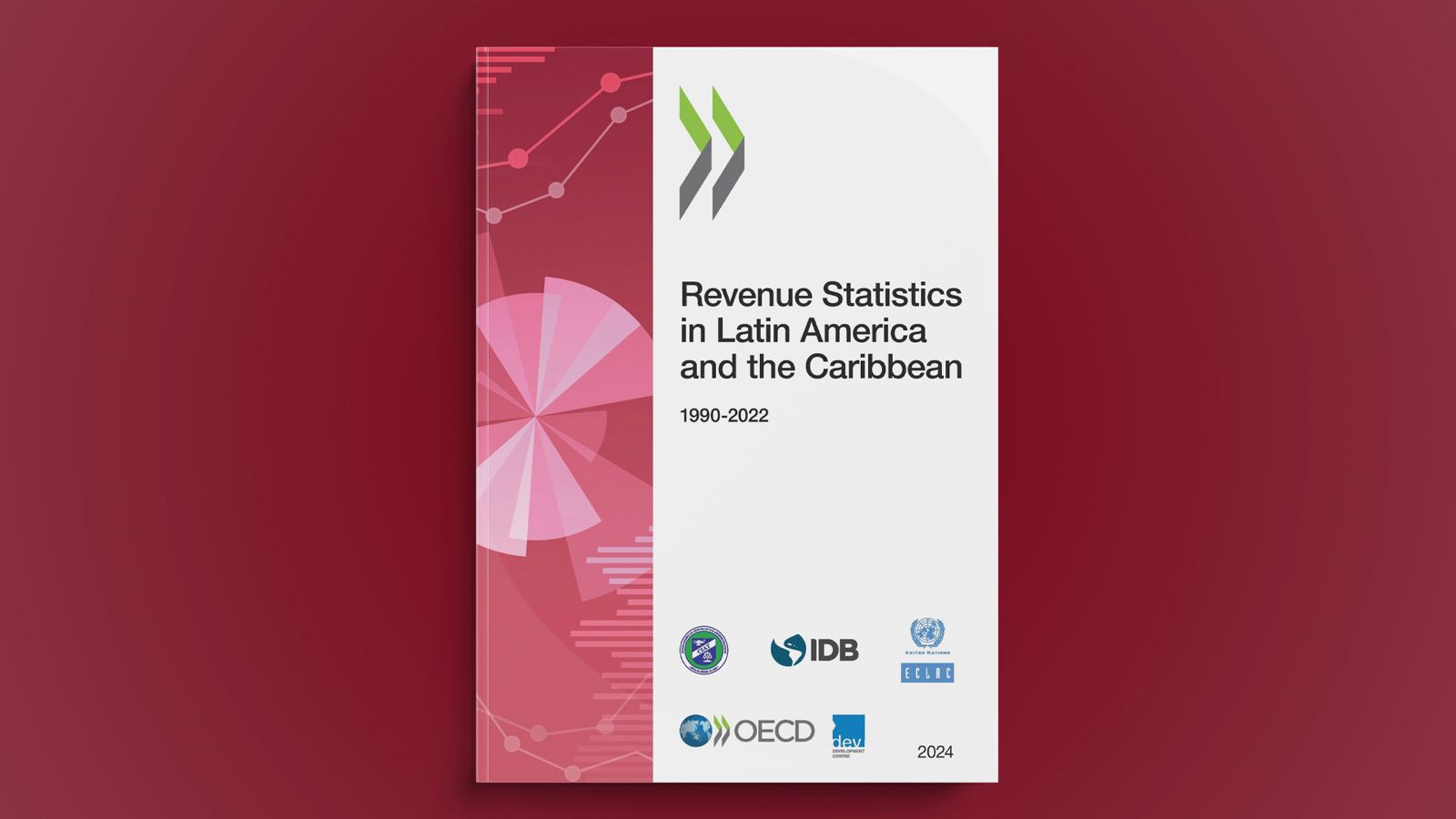Major Transformations in Latin America and the Caribbean’s Development Models Require Expanding Fiscal Space to Give Sustainability to Public Finances
Work area(s)
The XXXVI Regional Seminar on Fiscal Policy concluded today at ECLAC’s headquarters in Santiago, Chile, having brought together authorities from 13 countries’ Finance Ministries, experts and prominent scholars at a global level.

The major transformations needed in Latin America and the Caribbean’s development models in order to achieve more productive, inclusive and sustainable societies require an expansion of fiscal space to give sustainability to public finances, according to the authorities, experts and academics gathered at the XXXVI Regional Seminar on Fiscal Policy, which concluded this Wednesday, May 8 at ECLAC’s headquarters in Santiago, Chile.
This renowned regional forum – which has brought together authorities, specialists and members of civil society and academia for 36 years to discuss the fiscal policy challenges faced by the region’s countries – concluded by stressing the need to increase the availability of fiscal resources and make more effective use of them, by increasing both the level of tax collection as well as its progressivity, so it can contribute to reducing inequalities.
The event – organized by the Economic Commission for Latin America and the Caribbean (ECLAC) and sponsored by the Spanish Agency for International Development Cooperation (AECID) – drew authorities from 13 countries’ Finance Ministries and featured presentations by prominent experts from international organizations, academia, civil society organizations and non-governmental organizations.
It was inaugurated on Monday, May 6 by José Manuel Salazar-Xirinachs, ECLAC’s Executive Secretary, who warned that the current macrofinancial environment, characterized by low economic growth and high financial costs, has made fiscal policy management more complex in the region. “Countries have limited fiscal space, with growing pressure to contain public expenditures with a view to safeguarding public debt dynamics,” the senior United Nations official indicated.
He added that when countries have to devote 3, 4 and up to 5 points of GDP to debt service, there is reduced availability of resources for spending and investment in health, education, infrastructure and other key areas for economic and social development. “That is why we at ECLAC have been insisting that in order to develop the capacity to grow in a high, sustained, inclusive and sustainable way, and escape from the trap of low growth, the region’s countries must scale up and improve their productive development policies,” Salazar-Xirinachs emphasized.
During three days of debates, presentations were made by representatives of international organizations such as the Inter-American Development Bank (IDB), the Organisation for Economic Co-operation and Development (OECD), the International Monetary Fund (IMF), the CAF–Development Bank of Latin America and the Caribbean, and the Inter-American Center of Tax Administrations (CIAT). Participants addressed fiscal policy challenges in a context of low growth and climate change-related challenges, they analyzed options for expanding fiscal space, and they examined the possible fiscal impacts of a carbon tax. They also addressed the public spending priorities for achieving more sustainable development, the strengthening of public revenue for financing this, as well as the sustainability of public debt.
At the event, ECLAC released its annual publication Fiscal Panorama of Latin America and the Caribbean 2024, in which the United Nations regional organization analyzes issues relevant to the regional debate on climate change and fiscal policy, and indicates that boosting sustainable and inclusive growth requires major transformations in the development model to close the persistent structural gaps in productivity and those related to productive, social and environmental heterogeneity.
Upon presenting this document, the Director of ECLAC’s Economic Development Division, Daniel Titelman, stated that a key issue for the region is how to create the fiscal space necessary to accommodate these efforts in a framework of fiscal sustainability. “It will be necessary to strengthen tax collection to generate permanent resources to address investment needs. In the region there is room to strengthen the tax on personal income – which is the main tax gap with the OECD countries – and in other countries on property and wealth,” he indicated.
In this context, he also highlighted the importance of forging fiscal agreements to achieve the consensus needed to increase tax collection and also to enhance international cooperation in this area. In that regard, he underscored the importance of the work of the Regional Platform for Tax Cooperation in Latin America and the Caribbean (PTLAC) – which held the second meeting of its Council of Treasury, Economy and Finance Ministers on Monday, May 6 at ECLAC, prior to the inauguration of the XXXVI Fiscal Seminar – for sharing experiences and establishing regional positions with the aim of ensuring that key issues for the region are present in the international debate.
During the gathering the report Revenue Statistics in Latin America and the Caribbean (2024 version) was also presented, a publication prepared jointly by ECLAC, the OECD, CIAT and the IDB group, which reveals that tax revenue as a percentage of GDP increased in the region’s countries in 2022 versus the previous year, due partly to a marked increase in revenue coming from gas and oil extraction.
Related content
XXXVI Seminario Regional de Política Fiscal
Palabras de inauguración de José Manuel Salazar-Xirinachs, Secretario Ejecutivo de la CEPAL.

Countries that Make Up the Regional Platform for Tax Cooperation in Latin America and the Caribbean Issue Joint Statement in Support of Brazil’s G20 Presidency
A meeting of PTLAC’s Council of Treasury, Economy and Finance Ministers took place at ECLAC’s headquarters in Santiago, Chile.

Surge in Oil and Gas Revenue Drove Up Tax Receipts in Latin America and the Caribbean in 2022
OECD, ECLAC, the IDB and CIAT launched a new edition of their joint publication Revenue Statistics in Latin America and the Caribbean 2024, in the framework of the 36th Regional Fiscal Seminar being…
Related link(s)
Country(ies)
- Latin America and the Caribbean
Contact
Public Information Unit
- prensa@cepal.org
- (56 2) 2210 2040